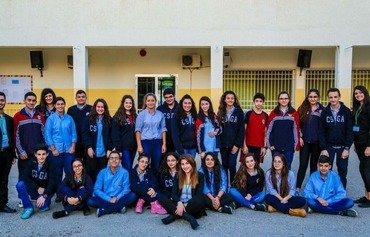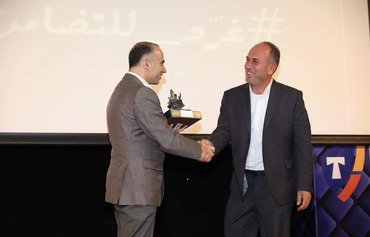In a region rife with conflict, a group of seasoned diplomats and academics hope to make Lebanon an international centre for conflict resolution and dialogue.
Lebanon has suffered through several wars and armed conflicts, and each time these crises have been resolved through negotiations and dialogue.
Although small in geographic area, Lebanon's rich religious and political diversity , central location and broad migration map, make it ideal to host meetings and dialogue to resolve conflicts from around the globe, stakeholders say.
A space for dialogue
Last month, Notre Dame University (NDU) in Beirut hosted an international forum of political and religious leaders, academics and diplomats to explore how the country can officially become "a space for dialogue among civilisations and cultures".
The university hosted the event along with the Lebanon Dialogue Initiative (LDI) in partnership with Initiatives of Change.
The initiative is pushing to establish Lebanon as an international centre for dialogue recognised by the UN, said Guita G. Hourani, secretary general of LDI and director of the Lebanese Emigration Research Centre at NDU.
In 2014, Hourani launched a petition addressed to the UN Secretary General to capitalise on former President Michel Suleiman's call to the UN General Assembly in November 2008 to designate Lebanon as "an international centre for the management of the dialogue of civilisations and cultures and consequently a global laboratory for that inter-entity dialogue".
"We believe that Lebanon is more than a country; it is a message of freedom, a model of pluralism and a special space for dialogue and co-existence of different cultures, ethnicities and religions," the petition said. "We also believe that Lebanon's vocation is to embody this message and to strive to live it and to promote it despite all the challenges and the obstacles faced."
Sectarian diversity a source of opportunity
"The Lebanese people in general do not see sectarian diversity as a threat but rather as a source of richness and an opportunity to lead dialogue in the Middle East," Hourani told Al-Mashareq.
The UN's adoption of the initiative would help implement the noblest of tasks, she said, namely "preventing destructive wars around the world and preserving peace".
The initiative will contribute towards sponsoring dialogue among countries and opposing parties by establishing a centre for dialogue that deals with contemporary national, regional and global conflicts in an attempt to limit them while reinforcing reconciliation, social justice and peace building, she said.
The initiative has put together a three-pronged working strategy plan, Hourani said.
The first step is to sign the electronic petition addressed to the UN Secretary General, she said.
The second step is to ratify the initiative by businesses, religious and civil society associations, and political parties, she said.
The third step involves "organising international annual dialogue sessions in Lebanon whereby two disputing teams would be brought together to discuss their differences and accentuate the importance of dialogue".
The first international dialogue session organised by the initiative was held at NDU on November 3rd, in which Kosovo and Serbia were invited to engage in dialogue, Hourani said.
Promoting a culture of dialogue
The campaign's electronic petition has so far garnered over 7,000 signatures.
"We hope to secure 10,000 signatures from well known figures so we can present the petition to the UN Secretary General to approve Lebanon as an international centre for dialogue," Hayat Arslan, a member of LDI's advisory committee, told al-Mashareq.
"Achieving this step will give Lebanon a moral position and place it as a neutral country," she said.
Arslan underscored the importance of creating a culture of dialogue and promoting it among the Lebanese people.
This would help "prevent political factions from relying on external powers to achieve a stronger position inside the country", she said.
"Dialogue is Lebanon's identity and mission because any pluralistic society cannot live without dialogue in the sense of accepting plurality and differences," said Mohammed al-Sammak, secretary general of the Islamic-Christian National Dialogue Committee and adviser to Lebanon's Grand Mufti.
The benefit of the UN's acknowledgement of Lebanon as an international centre for dialogue lies in the fact that it will give Lebanon a UN cover for its role in promoting dialogue, he told Al-Mashareq.

![Participants attend a presentation at the "Dialogue and Best Practices International Forum 2016" at Notre Dame University (NDU) in Lebanon on November 3rd. The Lebanon Dialogue Initiative (LDI) and NDU are petitioning the UN Secretary General to recognise Lebanon as an international centre for dialogue. [Photo courtesy of LDI]](/cnmi_am/images/2016/12/22/6864-lebanon-dialogue-centre-600_384.jpg)






